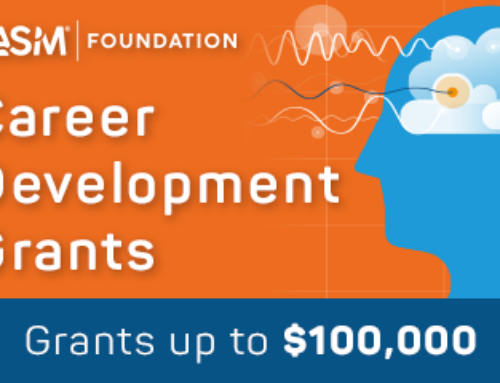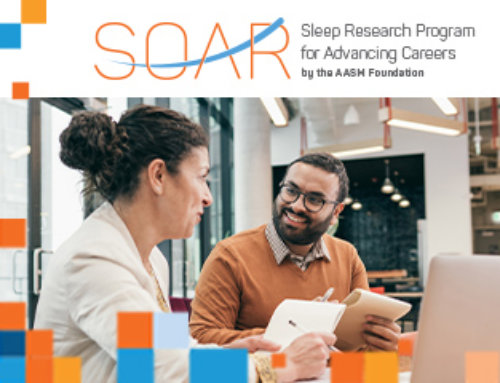This year, the AASM Foundation provided more than $110K in funding for its Focused Projects Award for Junior Investigators. The funded projects will address important unanswered scientific questions related to sleep and assist junior investigators in collecting crucial data needed to be competitive for a larger grant through the National Institutes of Health or Veteran Affairs Administration.
Congratulations to the 2019 Focused Projects Award for Junior Investigators recipients!
Focused Projects Award for Junior Investigators

Ashley Curtis, PhD
University of Missouri
Effects of Computerized Cognitive Brain Training on Sleep, Arousal, and Daytime Functioning in Older Adults with Insomnia
Current insomnia treatments do not improve cognition in older adults. Computerized cognitive brain training may improve specific sleep and cognitive outcomes, but underlying mechanisms are unknown. In this pilot study, we will evaluate post-intervention and 6-week follow-up effects of a 6-week brain training program (Nintendo DS Big Brain Academy) on behavioral/physiological sleep, arousal, cognition, and mood in older adults with insomnia. Results may facilitate development of targeted, easily disseminable cognitive interventions for older adults with insomnia.

Korey Kam, PhD
The Icahn School of Medicine at Mount Sinai
Role of Sleep Apnea in Risk for Preclinical Alzheimer’s Disease
In this grant, we are interested in asking how obstructive sleep apnea (OSA) impacts one’s risk for developing early stages of neurodegeneration and Alzheimer’s disease. By testing for noninvasive and novel biomarkers in human blood, we aim to understand the relationship between OSA and the proteins tau and neurofilament light chain (NfL). We hypothesize that both tau and NfL will increase following acute continuous positive airway pressure (CPAP) withdrawal compared to a night of adherent CPAP usage in participants with OSA.
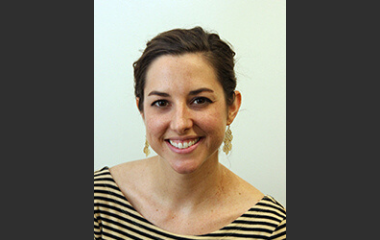
Monica Kelly, PhD
Greater Los Angeles Veterans Research and Education Foundation
Clinical Implementation of a Program to Improve PAP Treatment of Sleep Disordered Breathing among Veterans
Veterans are a population with unique vulnerabilities and needs regarding sleep-disordered breathing (SDB) treatment. The proposed project will develop and pilot a combined face-to-face and telehealth positive airway pressure (PAP) use program within a Veterans Affairs sleep disorders center as an adjunct to routine clinical care. Focus group feedback will be used to refine the program for future pragmatic research. We anticipate this program will improve PAP acceptance and adherence in Veterans with SDB.

Melanie Lyons, PhD, MSN
The Ohio State University College of Medicine
Medical Residents and Advanced Practice Providers Perceptions in Managing Perioperative Obstructive Sleep Apnea: A Multi-Institutional Survey
A significant void exists in the clinical practice of screening for and managing suspected obstructive sleep apnea (OSA) in perioperative patients. Increasingly, care is provided by various front-line providers. In collaboration with the Society of Anesthesia and Sleep Medicine, a multi-site, multidisciplinary survey will explore the perceptions of perioperative OSA management amongst medical residents and advance practice providers. Identifying variability in these perceptions will allow for targeted educational opportunities, improving understanding and patient care.
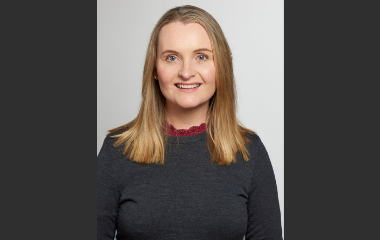
Anna Mullins, PhD
The Icahn School of Medicine at Mount Sinai
Measurement of Sleep: Delineating the Effect of Partners at Home (MOSDEPH)
Sleep testing using wearable ambulatory devices is prolific in the clinical and consumer market. However, the stability of sleep electroencephalography and electrocardiography measures between in-lab and at-home environments is not well established. To investigate this and the influence of a bed-partner on sleep oscillations, this study will acquire concurrent at-home polysomnography (PSG) in 20 co-sleeping couples where at least one of the pair has been referred clinically for an in-lab PSG to investigate obstructive sleep apnea.
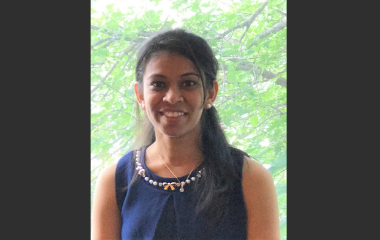
Riddhi Shah, PhD
Columbia University, New York
Insufficient Sleep in Women and Endothelial Cell Oxidative Stress
Insufficient sleep or sleep restriction (SR), is associated with endothelial dysfunction, a marker of cardiovascular risk. SR increases endothelial oxidative stress, however, the appropriate antioxidant response to increased oxidative stress is lacking in women after SR. To understand the underlying phenomenon for lack of antioxidant response after SR, we will investigate endothelial cells for regulators of antioxidant response. The proposed research questions may advance our understanding of underlying molecular mechanism that impair endothelial antioxidant response after SR despite increased oxidative stress.
About the AASM Foundation
Our programs and initiatives work to promote discoveries that advance the understanding of sleep for healthier lives. Millions of Americans are affected by sleep and circadian disorders, and our programs provide funding for high-impact research that will enable development of new diagnostic and treatment options for patients.


